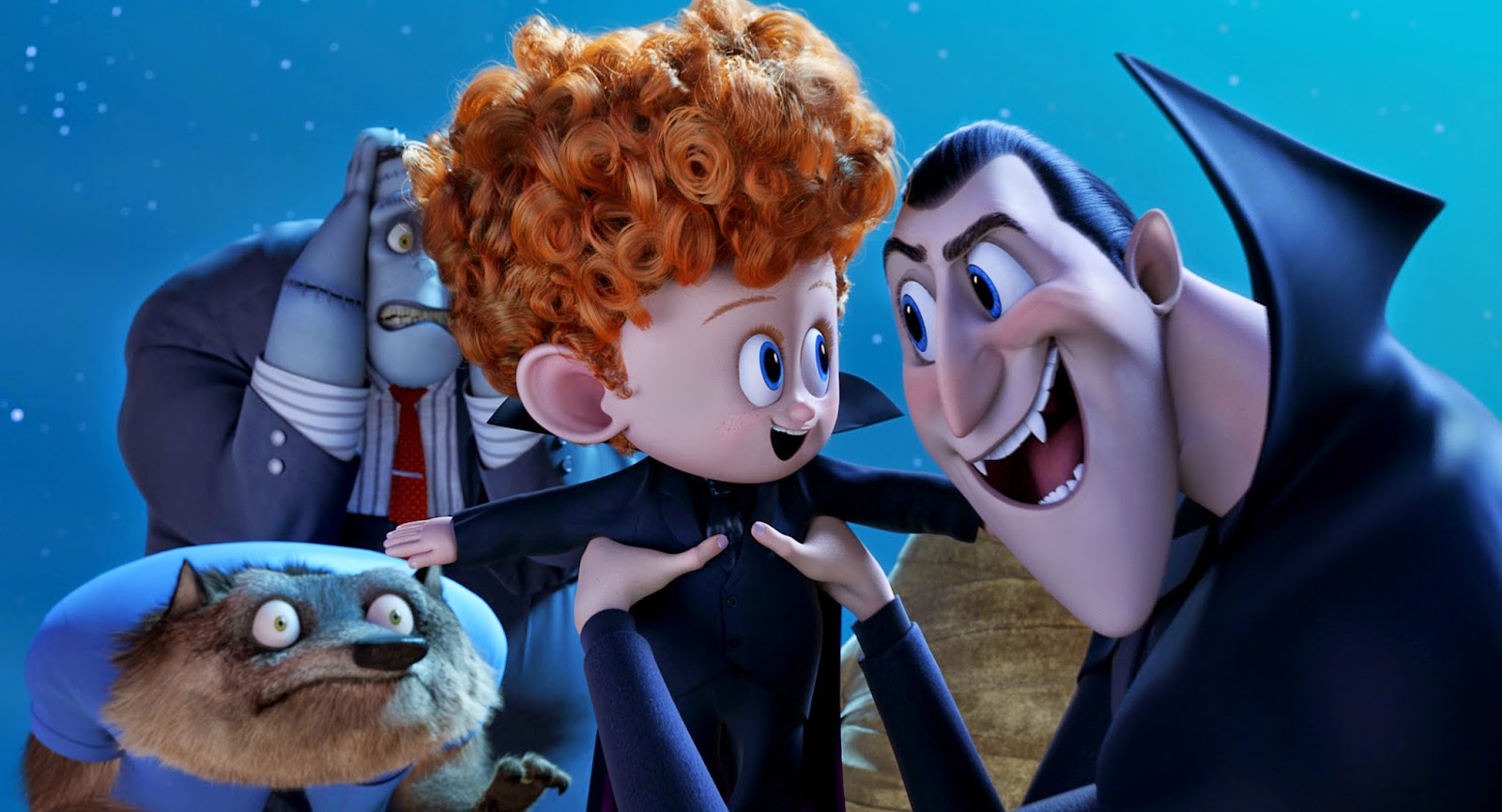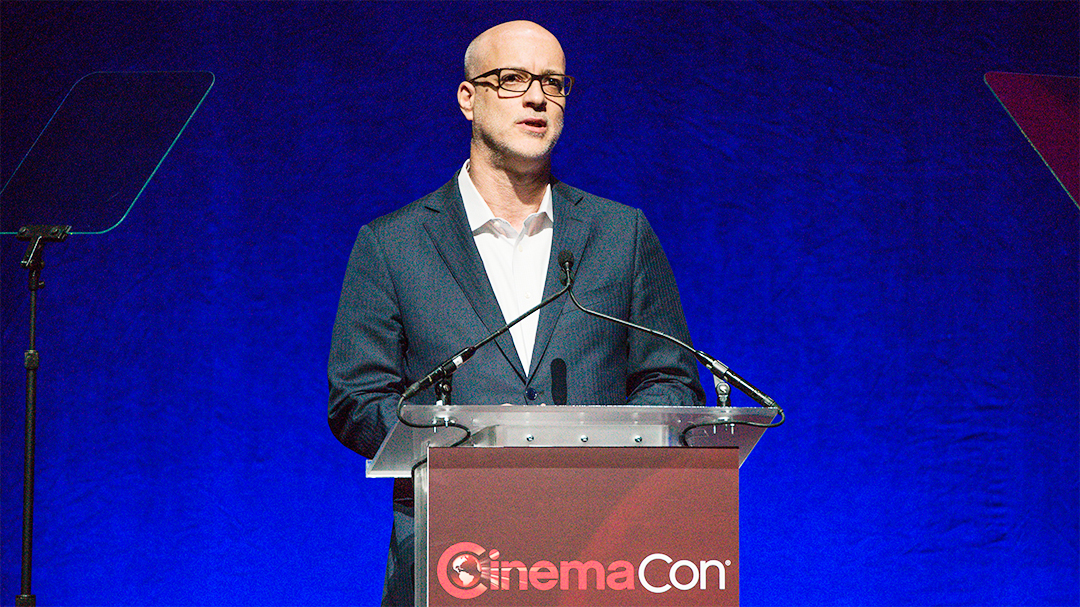CinemaCon Roundup: If You Want A Billion-Dollar Movie, Do You Still Have To Go Through Theaters First?
Theater owners convene in Las Vegas to whistle past the ICU of their not-that-healthy business

The smarter way to stay on top of the streaming and OTT industry. Sign up below.
You are now subscribed
Your newsletter sign-up was successful
Last week was, improbably, one where hundreds of people thought it would be great to spend late August in oven-hot Las Vegas amid a surging pandemic, discussing the joys of sitting in a dark room with dozens of strangers, watching movie stars in tights run around on a large screen.
I refer, of course, to CinemaCon, the lonely refuge of the battered business of theatrical exhibition. During CinemaCon’s few sweet days of sun-roasted relief, industry leaders talked bravely about how crucial their business is, and how media companies can’t afford to ignore them while building streaming-video alternatives. There was a lot of tough talk and Dallas Cowboys-level cheerleading about the primacy of a theatrical run, and easy shots at streaming executives.

“Simultaneous release does not work,” thundered the theater owners’ lead lobbyist, National Association of Theater Owners (NATO) CEO John Fithian.
“Show movies in theaters first,” rumbled Adam Aron, CEO of No. 1 theater chain AMC Entertainment. Exclusively exhibiting films in theaters is the "only... way to create a billion-dollar franchise."
Just to pinch a particularly sensitive part of the studio anatomy, Aron warned of “massive piracy” made possible by early streaming, though the industry has kvetched about online piracy losses about since the Internet was invented. Not incidentally, AMC also announced a deal to launch its own VOD service. If you can’t beat ‘em …
Executives from Sony, which doesn’t have a streaming service, revved up the CinemaCon crowd early, reaffirming their “commitment to protecting and preserving the theatrical window.” But the company also just sold Hotel Transylvania 4 to Amazon Prime for $100 million, after peddling Greyhound to Apple TV Plus last year for $70 million, and The Mitchells vs. The Machines to Netflix for $110 million. Again, if you can’t beat ‘em …
Truthfully, from the sunny shores of Santa Monica, it sounded like a herd of panicked people whistling furiously past a looming graveyard of dying industries, willfully ignoring the tombstones already being carved for their business.
The smarter way to stay on top of the streaming and OTT industry. Sign up below.
The exhibitors also began the canonization process for Patty Jenkins, director of Wonder Woman 1984 and an unhappy participant in WarnerMedia’s first day-and-date release of its 2021 theatrical slate on HBO Max, eight whole months ago.
The dual release was the “best choice in a bunch of bad choices at the moment,” Jenkins said, but not one she welcomed or wants to repeat.
“Look, I make movies for the theatrical experience. That’s the sandbox I’m in,” St. Patty said. “It’s OK for me if you watch it a second or third time on your phone, but I grew up loving the cinema.”
It’s terrible that a terrific female filmmaker such as Jenkins – who waited 13 years for a big Hollywood movie (and payday) after her indie feature Monster won an Oscar for star Charlize Theron – now faces the prospect of a diminished theatrical industry (and paydays) for the movies she’d prefer to make, but that’s the breaks.
Also, though the theatrical industry would like to believe the road to riches runs through exclusively through their venues, it keeps feeling less and less so.
We’ll get another test of the thesis on Labor Day Weekend, when Disney debuts its latest Marvel movie, Shang-Chi and the Legend of the Ten Rings.
The movie better be a gigantic hit. It has strong reviews, marks the start of a new Marvel narrative cycle, enjoys a wide-open holiday weekend, and won’t be released on Disney’s Premium VOD window. It also will have no excuses if it comes in like predecessors at a nice first weekend, followed by a precipitous drop in week 2. If we see more of that, it’s going to be a long fall, in multiple meanings of that word.
And it’s worth noting that even St. Patty administered strong medicine to her industry admirers, playing devil’s advocate Thursday by saying theaters aren’t investing enough to create better audience experiences. If even WW84 and Shang-Chi don’t look and sound a lot better than the home-entertainment system you bought with your pandemic relief check, what’s the point of heading out into the Delta surge?
Even more importantly, Jenkins warned that the industry is settling into releasing in theaters only a certain kind of very expensive, very loud, franchise-ready film. That situation will only be exacerbated by the many delayed blockbusters sitting in the pipeline. As she noted, there’s not much on tap that might appeal to an adult audience.
Of course, St. Patty’s plaint came days after the dual release of another Warner Bros. film, Reminiscence featuring Hugh Jackman. Seemingly the kind of adult-skewing movie Jenkins was championing – given its high production values, attractive cast and serviceable telling of a neo-noir/sci-fi story line – it should attract a different range of customers than the Marvel monsters. But Reminiscence has yet to scrape together even $8 million in worldwide box office.
A few more runs like Reminiscence and the studios will ship all those movies straight to streaming, and leave theaters with only the spandex scene for their screens. Those projects might indeed be billion-dollar properties, but they won’t keep the lights on for many theaters by themselves.
Moreover, those spectacle movies will mostly be seen in person on IMAX and other giant screens in premium settings, compounding an already growing schism between upscale and everyday theaters in audiences’ minds.
Another factor weighing on film box offices: China is no longer letting in as many Hollywood features as it once did, even as the country became the world’s No. 1 film market. It’s difficult to know if reduced access for U.S. films is a product of ongoing political tensions between the two countries, especially after U.S. sanctions against several Chinese telecom firms, but losing access to a country that regularly generated as much box office as the domestic market for at least some films will make the path to a billion-dollar franchise that much more complicated.
Meanwhile, Disney, which ditched CinemaCon after NATO said mean things, used the week to answer probing questions from activist shareholder Daniel Loeb about whether it should just mash together its three streaming services into one honkin’ big Netflix competitor.
“The combined strength of Disney’s various sports, general entertainment, and blockbuster franchises remains unparalleled in the global media industry,” Loeb wrote in an investor letter. “The best way to capitalize on this strength to maximize future earnings potential globally (both reach and pricing power) is by providing an all-you-can eat DTC offering on a single platform under the Disney+ brand, where all theatrical content is available day-and-date with no additional fee to subscribers.”
The company’s ringing response: maybe.
Keeping three separate services with separate log-ins “so far, (has) worked really, really well,” said CEO Bob Chapek. While the company figures out the best approach, “frankly, we don’t know what’s ideal yet. We’re in the first inning of the first game of a long season, and we’re taking all this into account.”
Also, though Disney only revealed this in a hugely important lawsuit, the company said it has made $125 million on streaming revenue from Black Widow since its release less than two months ago. That’s a hefty number, especially on top of $371 million in worldwide theatrical gross. But it’s difficult to evaluate whether that’s a good number without knowing how Black Widow performs for the rest of its distribution cycle.
It almost certainly won’t reach $1 billion in revenues any time soon, but it’s not clear whether any film would reach that magic number in the current Covid-cursed climate, exclusive theatrical run or not.
Netflix, meanwhile, is building a movie busines for future Patty Jenkins, who may be more comfortable creating feature-length projects that don’t IMAX to make sense as spectacle, story, and spreadsheet.
This past week, Netflix put release dates on a boggling 43 features of all kinds to run the next four months.
That slate includes plenty of big names, kids shows, genre and niche audience workouts, awards contenders, plus those mid-sized grownup movies St. Patty mentioned. It’s also roughly equal to the combined annual output of most of the rest of Hollywood. So much for needing theaters to make a business, if not a billion-dollar franchise.
David Bloom of Words & Deeds Media is a Santa Monica, Calif.-based writer, podcaster, and consultant focused on the transformative collision of technology, media and entertainment. Bloom is a senior contributor to numerous publications, and producer/host of the Bloom in Tech podcast. He has taught digital media at USC School of Cinematic Arts, and guest lectures regularly at numerous other universities. Bloom formerly worked for Variety, Deadline, Red Herring, and the Los Angeles Daily News, among other publications; was VP of corporate communications at MGM; and was associate dean and chief communications officer at the USC Marshall School of Business. Bloom graduated with honors from the University of Missouri School of Journalism.

